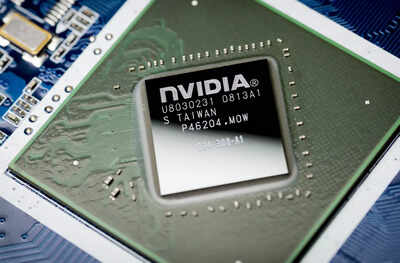
Nvidia has secured a major breakthrough in China as the company’s CEO, Jensen Huang, says that the Trump administration has granted approval for the tech giant to sell its advanced H20 artificial intelligence chips to Chinese buyers.Huang shared the news in a company blog post late Monday and also discussed the development in an interview with China’s state-run CGTN, excerpts of which were aired on X.“The US government has assured Nvidia that licenses will be granted, and Nvidia hopes to start deliveries soon,” the blog said.“It’s so innovative and dynamic here in China that it’s really important that American companies are able to compete and serve the market here in China,” he said, quoted by AP.“Today, I’m announcing that the U.S. government has approved for us filing licenses to start shipping H20s,” Huang told reporters in Beijing. He further highlighted that half of the world’s AI researchers are in China.Back in April, the White House had unveiled plans to restrict sales of Nvidia’s H20 chips and AMD’s MI308 to China. Nvidia warned at the time that the export controls could cost the company an additional $5.5 billion.Huang, alongside other top tech executives, had been lobbying President Donald Trump to ease the restrictions. They argued the limits would blunt America’s competitive edge in a sector vital to the global economy and risked losing ground in one of the world’s largest tech markets.Huang’s comments come just ahead of his scheduled appearance at the opening ceremony of the 3rd China International Supply Chain Expo on Wednesday, according to Chinese state media. The expo appearance marks his third visit to China this year.Despite facing tougher competition from local players like Huawei, Nvidia remains committed to the market. On a previous visit to Beijing in April, Huang told Chinese vice premier He Lifeng that he saw strong potential in the Chinese economy and expressed his willingness to deepen Nvidia’s presence in the country.Back in May, Financial Times reported that Nvidia was planning to set up a research and development centre in Shanghai, though neither the company nor local authorities confirmed the report to AFP at the time.












